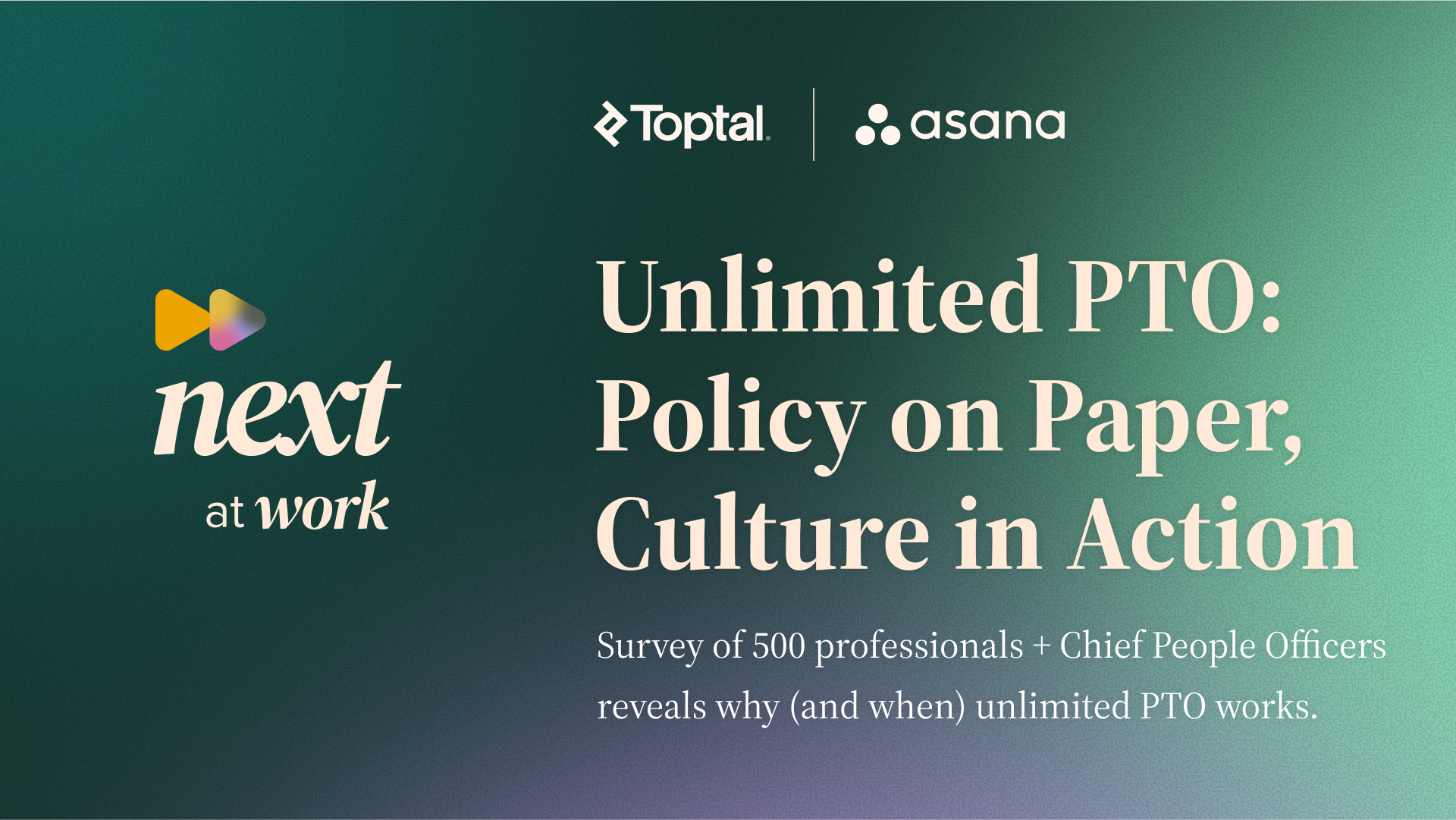What happens when AI screens AI? 4 insights from experts
Workable, Refapp, and Recruiting Brainfood recently came together to explore the intriguing topic of using AI in hiring. In a thought-provoking discussion, they shared key insights that shed light on the future of AI and how it can impact the recruitment process.

Talking about the effectiveness of AI and trying to forecast the future of it is not an easy task. It is a rapidly evolving space with many twists and turns, and it’s important to listen to those in the know.
AI is becoming a part of our professional lives, but what happens in hiring? What happens when candidates utilize AI tools to apply for a job and another AI tool will conduct the first screening?
To discuss this, David Näsström, co-founder of the reference checking platform Refapp, and Emira Blomberg, Refapp’s CSO, sat with Workable CEO Nikos Moraitakis and Hung Lee, curator at Recruiting Brainfood, in a webinar titled Hiring for Potential: When AI is screened by AI, then what? on October 25, 2023.
A quick side thought: the best-case scenario is that AI optimizes the process for both employer and candidate. Worst-case scenario may be the recruitment version of the old Stephen Wright joke about putting a humidifier and dehumidifier in the same room and letting them fight it out.
Jokes aside – here are the key takeaways to put you in the discussion.
Contents
1. Both employers and candidates are using AI tools
Recent surveys have shown that generative AI is being used by both candidates and companies in the hiring journey.
This situation has implications on both ends of the hiring spectrum, questioning whether the overlap of AI in both applying and screening processes will lead to better recruitment decisions or merely speed up the hiring process without improvement in quality.
“AI screening can analyze information so quickly. AI can screen hundreds of resumes in a matter of minutes searching for relevant experience or other useful qualities. Recruiters can identify candidates faster,” Emira states.
There’s a predicted surge in applications as candidates leverage AI to perfect and automate their applications. This can dilute the significance of known personality indicators making it harder for recruiters to identify authentic candidates in a vast pool of applicants.
“Candidates are given all kinds of tools in order to boost their own application process, like for example, ChatGPT with the cover letters, with the resumes,” says Emira. “So it is a really weird scenario that we end up with AI, screening AI, and I’m really conscious [in asking]: ‘Will this lead to better recruitment decisions?’”
This raises the possibility of needing AI-to-AI interactions to counteract this deluge or rethinking recruiting processes.
“I think what we also must focus on not just [trying] to shorten time to hire, because that’s not the KPI to rule them all. That’s one KPI, right?”, says David.
There’s also a highlighted difference in motivation between recruiters and job seekers to adopt AI, with job seekers being much more incentivized to use every tool available.
“We’re still at the very early stage of this. And with every new technology, initially you have the technology and you have people using the new tool to do what they were doing before.” adds Nikos.
2. A return to ‘real human’ interaction
The potential for AI to mimic human-like behavior and tasks, such as language translation, prompts a departure from traditional values in recruitment.
However, it should not be surprising if in-person interviews return due to trust issues and a potential re-evaluation of what matters in recruitment.
“The trust factor is going to be eroded with the ubiquitous use of AI. If we are still in the business of hiring people for growing a team, for instance, and we care about that, then yeah, we can see that the analog processes come back in.” Hung says.
“The trust factor is going to be eroded with the ubiquitous use of AI.”
While AI can handle much of the recruitment groundwork, human-to-human interactions may become a premium, valued experience especially for specific roles where soft skills play a huge part.
Nikos brings up the example of plastic, which was perceived as an invention that would end craftsmanship, but it didn’t:
“Maybe the recruiting process is going to change to be a process that is a lot more software, a lot more automation, a lot more filtering and getting machines are going to battle it out until we get to the point where we talk.”
In short, there remain many blurry lines in how AI in hiring will evolve even in a year from now.
3. The impact of AI is sometimes overestimated
Despite the advances in AI, maintaining a personal touch in the recruitment process remains crucial. Relying solely on AI could diminish the candidate experience. That is because this technology is still new to many of us.
Plus, the pace and impact of AI in hiring are sometimes underestimated or overestimated.
“You feel that, for the first time, you are witnessing something that is going to be unstoppable. But, like all technologies, it is also going to follow the same cycle of adoption. This is not about the AI itself, but rather about the way we purchase software, use it, incorporate it into our processes, lives, habits, and all the other good stuff,” says Nikos.
Emira shares a quote from Roy Charles Amara: “We tend to overestimate the effect of technology in the short run and underestimate the effect in the long run.”
“We tend to overestimate the effect of technology in the short run and underestimate the effect in the long run.”
On the other hand, Hung believes that there is a lack of analysis: “When you’re looking at technology innovation, oftentimes we mistake analogy for analysis.”
But what does it mean for candidates?
“What’s going to happen in the short term is that we’re [going to] start getting weaker and weaker signals from some parts of the process so we’re going to have to pay more attention to other parts of the process,” David says.
4. AI needs to be the enabler for human touch
We borrowed this phrase from a chat comment that better suits this takeaway. There’s a call for AI to be an enabler of better human interaction rather than a barrier.
While AI can handle the efficiency side of recruitment, the human touch is essential for providing experience, value, and ethics, often overlooked or undervalued in the current recruiting process.
“We always valued efficiency more than the human touch. Maybe here’s an opportunity, because AI may be able to basically take care of the efficiency, and the human touch comes in order to provide the experience, the value, the ethics, perhaps that have been missing from recruiting. So, I think there is an optimistic vision of how this ends up.”, Hung says.
“We always valued efficiency more than the human touch.”
“What are we supposed to think about when we actually implement AI? In our processes, these kinds of philosophical questions are untouchable by AI, because it’s human, right? And those are the discussions that we are not having. And that makes me feel super stressed out, because these are the discussions that we should be having,” Emira says.
However, there’s a cautionary note that recruiters must advocate for the value of this human touch, or the industry might get swayed entirely by the allure of efficiency brought by AI.
On the contrary, a solely tech-driven approach might lose sight of the personal, “human” side of hiring.
“I keep reminding myself that these things usually take enough time that we can adapt because they adapt with us. When we see a technology, we assume that everyone is going to instantly be motivated to use it in the best way like they did,” Nikos says.
“These things usually take enough time that we can adapt because they adapt with us.”
The outcome
Wrapping up on the takeaways, it’s clear that technology can’t replace the unique human connection in hiring. While there’s a hype around AI, it’s essential not to overestimate its impact.
For HR professionals, the challenge is guiding AI’s role so it supports, not supplants, the traditional recruitment process. Let’s view AI as a tool in our toolkit, not the sole game-changer.
After all, it’s not going to kill us like the T-1000. Hopefully.
Frequently asked questions
- What is the potential role of AI in the hiring process?
- AI can drastically speed up the hiring process by screening hundreds of resumes in minutes, identifying the most suitable candidates based on specific criteria. However, with both employers and candidates using AI tools, the dynamics of recruitment are rapidly changing, requiring a balance between efficiency and authenticity.
- How do AI tools impact the candidate experience?
- While AI can enhance efficiency, relying solely on it may diminish the personal touch crucial to the candidate experience. AI's true potential lies in acting as an enabler to human interaction, ensuring that the process remains genuine and candidate-focused.
- Is there a possibility of in-person interviews returning despite AI's rise?
- Yes. With potential trust issues arising from AI's ubiquitous use, in-person interviews might make a comeback. Human-to-human interactions can offer a premium, valued experience, especially for roles where soft skills and personal attributes are paramount.
- What is the potential downside of over-relying on AI for recruitment?
- Over-relying on AI could lead to an erosion of trust and a dilution of authentic personality indicators. This might make it harder for recruiters to identify genuine candidates, leading to weaker signals in the recruitment process.
- Can AI completely replace the human element in recruiting?
- No. While AI can offer efficiency and data-driven insights, the human touch provides experience, value, and ethical considerations essential to the recruitment process. It's crucial to view AI as a supplementary tool, not a replacement for human interaction.



